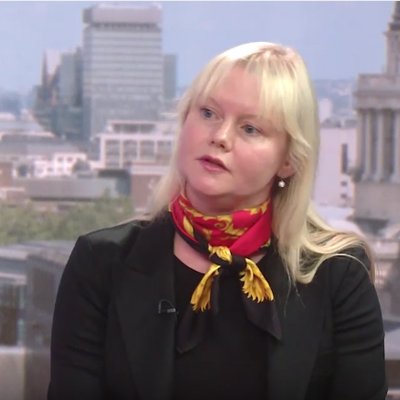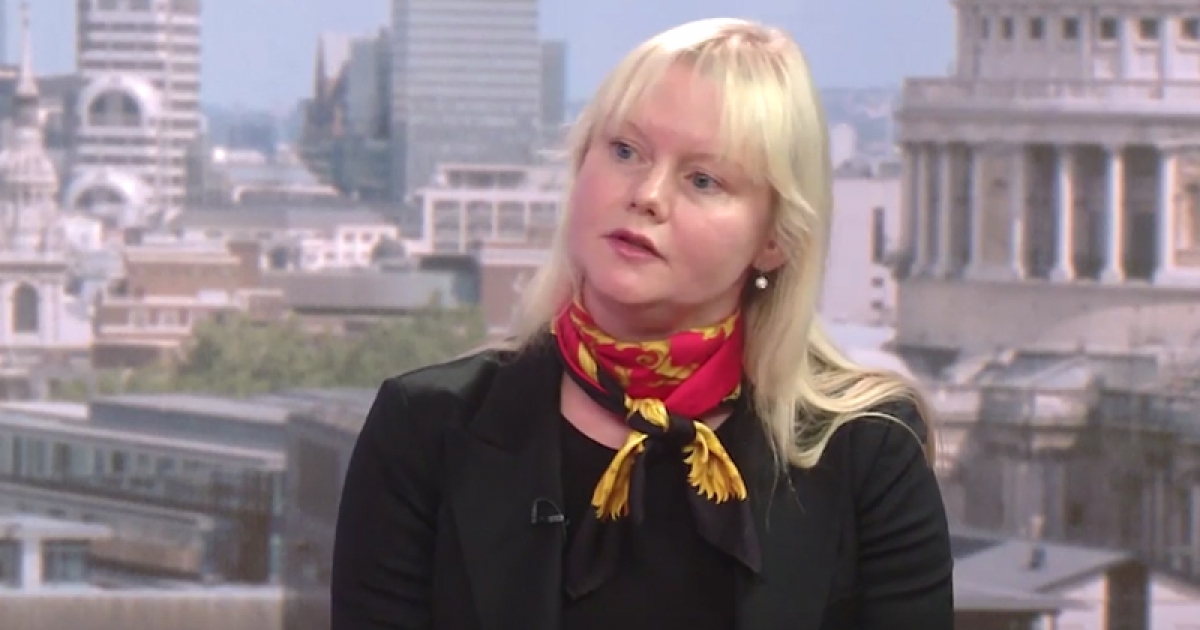Sustainable Investing For The Environment & Society
Q: Tell us more about your area of professional expertise.
A: I am working in an area called ‘ESG’ – environmental, social and governance research and sustainable investing. ESG responsible and sustainable investing encompasses a variety of different approaches, including screening, integration as well as engagement and active ownership. ESG factors offer investment managers added insight into the quality of a company’s management, culture, risk profile and other characteristics. ESG has moved from the fringes to mainstream investing. Nowadays, almost 1,500 investors and service providers with a total AUM of US$59 trillion (up from US$4 trillion at the PRI’s launch in 2006) are committed to adhere to the 6 UN-backed Principles for Responsible Investing (PRI).
Q: What were the major obstacles to overcome?
A: A few years ago, ESG and sustainable investing was a niche area. There was, and is still, a great deal of confusion about definitions and I have made an attempt to identify common themes and differences between sustainable investing, impact investing, philanthropy and venture philanthropy, by co-publishing a book on the ‘Fundamentals of Modern Philanthropy’ (2014). Capacity building remains a challenge. When I worked for a major ESG research, ratings and analytics house, I always told our research, product and client service teams that we were still creating a demand, and were not yet servicing it. So I worked intensely on an integrated marketing strategy (brand, partnerships, products and themes) to make a socio-economic concept become an investment reality. Today, many ‘ESG pioneer friends and colleagues’ and I are proud that after years of education, capacity and awareness building, the page is finally turning - ESG is getting into the mainstream - and we have actively contributed to this process.
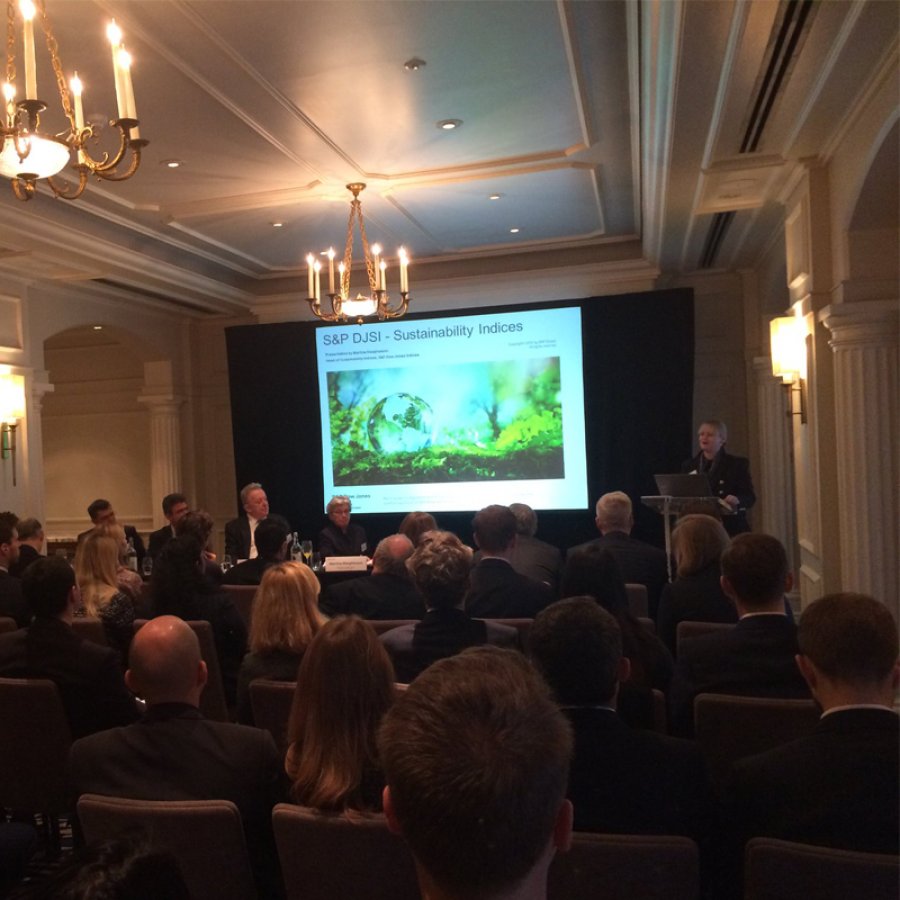
Q: Did you have a mentor or a role model?
A: I strongly believe in mentors, role models and thought leaders. I was lucky enough to have mentors and role models in my life. One of them kept me interested, aware and engaged on key (ESG) issues and active ownership. I have learned a lot from him. On a side note - unfortunately, I rarely found these thought leaders among my direct managers.
Q: What habits helped make you successful?
A: There are a few habits that I feel are important in (my) personal development - again, no habit or concept works in isolation: Being dedicated, inquisitive, ambitious, flexible, passionate and compassionate - and being able to listen, learn and to apply.
Q: What was your biggest mistake?
A: There were, and hopefully will be, a few! I believe that we learn more, get focussed and ultimately grow, professionally and personally, by making mistakes - and by overcoming challenges and obstacles. As Henry Ford once said, “Obstacles are those frightful things you see when you take your eyes off your goal.”
Q: What has been your biggest lesson so far?
A: I think there are many lessons that have made an impact on my life and career. But there are a few common themes that are surfacing over and over again: 1) that this is the age of the universalist, 2) that values and purpose are universal concepts, that they matter and they can drive positive performance (in any context), 3) and that cross-fertilization and collaborative actions can help to achieve even bigger goals.
Q: How can an executive minimize the unknowns?
A: Through research, learning and ultimately by promoting learning. Our age is driven by innovation, change and speed - and ambiguity and uncertainty have become the norm. A decade ago, Philip Hodgson and Randall White have developed a concept to identify eight broad strands of behaviour that seem to help people (executives) cope with ambiguity and uncertainty. They have called these behavioural skills ‘Enablers’ and they include ‘The Mystery Seeker’, ‘The Risk Tolerator’, ‘The Future Scanner’, ‘The Tenacious Challenger’, ‘The Exciter’, ‘The Flexible Adjuster’, ‘The Simplifier’ and ‘The Focuser’. I think this is an interesting concept, and I can see myself in almost all of these ‘enabling’ roles.
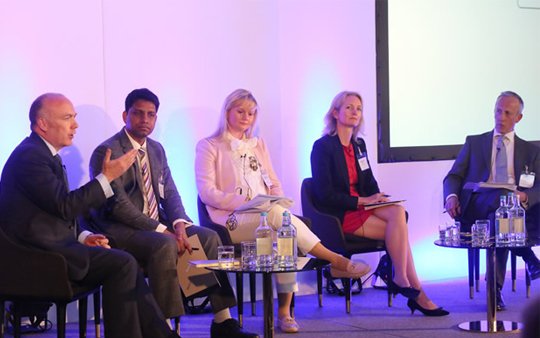
Q: How can we help more women climb up the corporate ladder and break ‘glass ceilings’?
A: There are various challenges for women (and men) of all ages, ethnic groups and across organisations - these challenges are linked to organisational design, managerial credibility and talent management. Over the last couple of years, the glass ceiling has become ever more thicker, ‘managing upwards’ (not necessarily leadership) has become the norm, while managing and training the next generation of leaders is often no longer seen as a pre-requisite. Mentorship and diversity programmes as well as women’s networks are important to raise awareness around the issues. But in order to achieve sustainable transformational change, we also need to work with all stakeholders towards creating a more ‘inclusive’ corporate culture - where vision, mission and values are fully aligned, top down. I have taken the first actions and have gathered a group of experts to join me on the journey – together, we explore ‘human governance’ models that can help to ‘Value Your Talent’.
More information is available upon request!
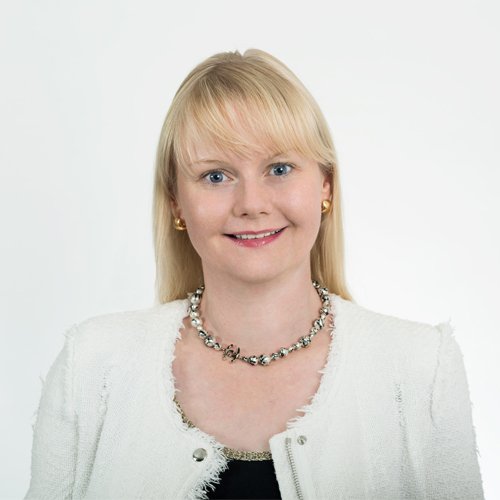
Martina Macpherson
Managing Partner, SI Partners, Head of Sustainability Indices, S&P Dow Jones Indices & Chairperson, GTF Non-Executive Directors Board
Martina Macpherson is the Founder and Managing Partner of Sustainable Investment Partners (SI Partners), based in London. SI Partners is an independent consulting firm that specializes in Economic, Environmental Social and Governance (E-ESG) research, product development, marketing/thought leadership content as well as engagement services.
Martina is an independent NED board member & chair at the Global Thinkers Forum, a social-purpose think tank creating international discourse around governance, society and future trends. She also sits on the analyst committee board at UKSIF, the UK’s sustainable investment and finance association, and on the board of Thomas Arneway Trust, one of the UK’s oldest charities. Martina is a member of the Institute of Directors, and an affiliate member of ICSA - the Institute for Corporate Governance, as well as of the Chartered Institute of Marketing and PRCA. She participates in a range of sustainable investment and ‘green’ finance working groups such the Network for Sustainable Financial Markets and the Accounting for Sustainability Network.
Martina is a writer, lecturer and presenter on sustainable, impact investment and corporate governance themes and contributes regularly to industry and academic publications in this field.
She is also an alumni fellow of the German National Academic Foundation.
From 2015-16, Martina has worked at Hermes EOS, as an Associate Director, Corporate Engagement and Public Policy. Prior to this, she has held a range of global business, research and product development roles at MSCI, Lloyds Banking Group, RBS, F&C and Deutsche Bank.
Interests:
- Economic, Environmental, Social and Corporate Governance (EESG) research
- Sustainable Development Goals, Natural Capital Coalition, and Green Bonds Investor Coalition
- Green and social finance, green bonds assessments, SPOs and ratings
- Social investing, metrics, outcome and impact
- Human governance, organisational design and corporate culture
- Active ownership, shareholder engagement and stewardship
- Stakeholder management across the sustainable financial markets value chain
Contact Me:
Martina Macpherson
Email: martina.macpherson@gmail.com
Website: www.si-partners.co.uk
LinkedIn: https://www.linkedin.com/in/martina-macpherson-1a093a1?trk=nav_responsive_tab_profile
Twitter: https://twitter.com/MN_Macpherson
Published: 26/04/2017


